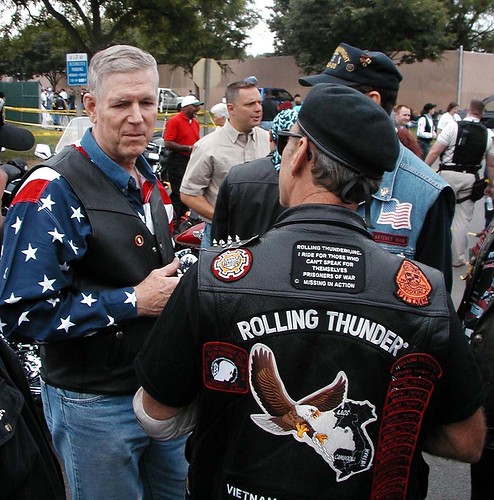Round 1: In Which Liberal Blogger General Stan Encounters Friendlies in the Opposition
And So Humble General Stan found himself in a situation only marginally familiar to him. A family friend from the opposing political spectrum, and also a man who is highly respected and admired, was being hosted as a family friend. Inevitably, the conversation took a turn into political territory which could only cascade into a potentially lengthy and interpersonally damaging series of debates bouncing from topic to topic.
The Players:
Liberal Blogger General Stan - a liberal blogger [and little else]
R - A retired Military Pilot and Christian Conservative
Rather than a detailed breakdown of the chords of debate (please just reference the polical blogosphere on both the left and the right for the terms of the debate as well as the points of discussion and the perspectives), I have only one thing to share.
I lost the "debate" as it were. Scroll all the way down to see why. Not that there was score being kept. And while there are some points I was able to at least present to R as viable perceptions with evidences behind them to support them, and while some of those I even believe I translated into meaningful arguments for his consideration (which is, as always, all one can truly do), I know how trite the exercise was.
Obviously both of us are strongheaded and have our own perceptions, histories, reading lists, and experiences we bring to the table along with our ideologies. These combinations make sea-change debates impossible: all we can therefore hope to garner is some sense of open discussion and compromise at the debate's conclusion.
I have to admit, as well, that I accepted very few of R's arguments on the grounds that I feel his evidence was more justification than justified, often circular, often intrinsically biased or closed-minded [as though mine were not.]; I also spewed forth many flawed ones which I hope he can reject without personal judgement of me.
But I have come to one great conclusion at the end of this night, these 6 hours of every current political topic being discussed:
R believes, at the very core, at, if not now, at some point in time the United States was just fine. And there are threats to that "truth," such as islamofascists and terrorists, as well as those internal forces such as aspects of agendas of extreme liberals, that are engaged in battle and must be essentially vanquished in order to return to that state. What, exactly, that time of stability, proper life was, I cannot say. But this is the core of the story: that there is almost nothing wrong with America, and that what is wrong can be fixed.
And I, I discovered, believe the opposite. That this perception itself is myth. That in the absolute best of American circumstance America has always been embattled and amidst intense struggle. That so much of what we do is contextual, and very complicated. But most of all, that not now or ever have things been "Okay" in America. They may be better than anywhere else, but they always are far from "good enough." That believing in a perfect America is placation.
And so, I find that R is an eternal optimist with tinges of realism: he sees these problems themselves as being fixable in an otherwise fine system. Why mess with it so much? It only causes more confusion and cultural strife.
And I am an eternal pessimist: I believe in the flaws of the system [political and cultural] as much as the structures that are positive and effective. But more than anything else, I believe that as much as anything is RIGHT about America, there are so many things that are WRONG, and that the cultural strife is something of a symptom of internal problems rotting away at things. Things like feminism come from America's oppression of women until only half-a-century ago [and with much work left to be done]. That racism did not end in the civil rights movement. That America's language divide is in a shift as great as the growing poverty discrepency. And that the War on Terror itself has idealistic flaws, but that the terror of 9/11 had indicators, that at least some of the building of the hate of America that is due to America's actions, and that solving these troubles is a multifaceted and absoultely difficult problem that is unsolvable by the War.
But what I believe is that there is something wrong, and that I have to do what I can to help right it- and at this moment it is criticism of The Administration.
And so the reason, you see, that I lost this debate, is because it was impossible for me to convince R that yes, there is something wrong here, that things are not just Okay, and that there is something we have to do about it.
This, it seems, is likely our challenge. R is a highly literate, educated, very experienced and smart person; he just believes that everything is fine.
So how do we communicate this narrative: that America has severe flaws that we need to work to fix? This, it seems to me, must be part of the Liberal agenda as we move forward. This development of a concept that things are not clear and okay, and that we must move to correct them.








